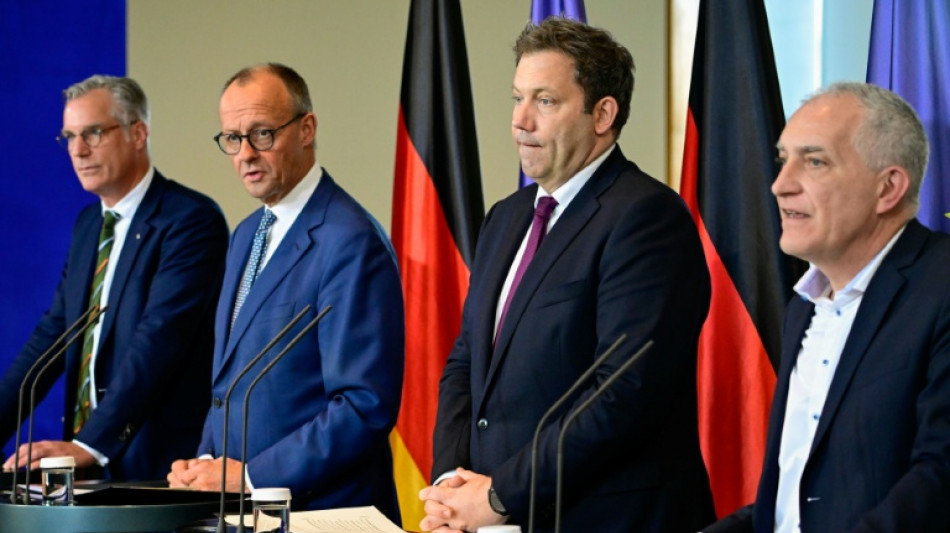

Merz backs EU plan to protect steel sector from Chinese imports
Germany supports proposals by the EU to increase tariffs on foreign steel as the bloc struggles with cheap imports, especially from China, Chancellor Friedrich Merz said Thursday.
"These proposals are a step in the right direction," Merz said following talks with key steel industry players in Berlin.
The EU in October floated plans to double tariffs on foreign steel -- taking a leaf from US President Donald Trump's book to shield the bloc's struggling industry from cheap Chinese exports.
The bloc's executive proposed hiking levies on steel imports to 50 percent and slashing the volume allowed in before tariffs apply by 47 percent.
"I will support these proposals to the best of my ability and hope that appropriate regulations will be put in place," Merz said.
The EU strategy mirrors the one embraced by Trump, who imposed 50-percent tariffs to keep out cheap metals from China, the producer of more than half the world's steel.
Germany is Europe's top steel producer, and the seventh largest in the world, according to the World Steel Association.
Steel is widely used in many sectors in Europe's biggest economy, from construction to automotive and mechanical engineering, and is an essential component of exports.
But China has for years been flooding the market with large quantities of steel at knock-down prices, undercutting German producers.
"We are facing major challenges in terms of changes to global trade policy," Merz said.
"These include, on the one hand, the tariffs imposed by the United States and, on the other hand, changing trade flows, particularly from Asia and especially from China, which are flooding the markets with subsidised steel.
"Effective protection is therefore needed in this area. We have agreed to advocate for this in Brussels."
Germany's steel sector also took a hit from increased energy costs after Russia's 2022 invasion of Ukraine, with prices still well above levels seen before the war.
In recent times, steel production in Germany has languished at 10 to 15 percent below 2022 levels.
The talks on Thursday brought together Germany's top producers as well as leaders from states where the industry is a major employer.
"We share the steel industry's concern about the current economic situation," Merz said.
"Companies are facing a crisis that threatens their very existence, which is why this dialogue... was urgently needed."
V.Valdez--ECdLR






